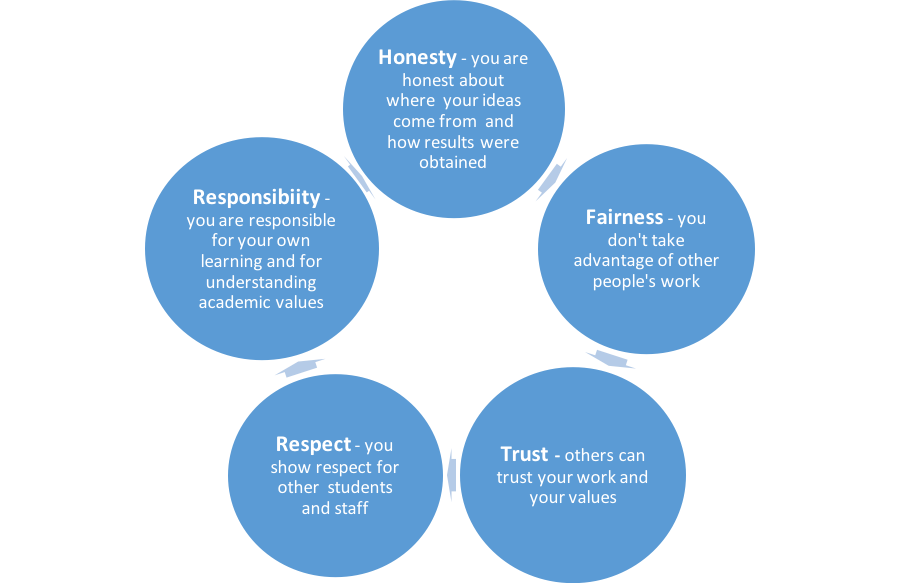Instructor’s Policy on Academic Integrity
 Faculty are strongly encouraged to include a statement regarding this policy in their syllabi because it makes students aware of the faculty member’s policy and alerts them to the importance of academic integrity in the ECU community. [Note: if specific penalties are indicated in the course syllabus, it is expected that students who have violated the academic integrity policy will be held to them.]
Faculty are strongly encouraged to include a statement regarding this policy in their syllabi because it makes students aware of the faculty member’s policy and alerts them to the importance of academic integrity in the ECU community. [Note: if specific penalties are indicated in the course syllabus, it is expected that students who have violated the academic integrity policy will be held to them.]

(British Council, 2014)
The ECU Office of Student Rights and Responsibilities says this about Academic Integrity:
“Academic integrity is a cornerstone value of the intellectual community at East Carolina University. Academic integrity ensures that students derive optimal benefit from their educational experience and their pursuit of knowledge. Violating the principle of academic integrity damages the reputation of the university and undermines its educational mission. Without the assurance of integrity in academic work, including research, degrees from the university lose value, and the world beyond campus (graduate schools, employers, colleagues, neighbors, etc.) learns that it cannot trust credits or a diploma earned at ECU. For these reasons, academic integrity is required of every ECU student.” (ECU Policies & Procedures, n.d.)
Syllabus language and resources on Academic Integrity:
The Office of Student Rights and Responsibilities has created several Academic Syllabus Statements that you can add to your syllabi. They have created faculty resources and upholding academic integrity activities for inclusion in your course. For reference, ECU’s Academic Integrity Policy.
Sample Statements:

(Sigafoos, 2019)

From ECU Molecular Basis of Medicine Syllabus (Brian Schewchuk and Theresa Phillips)

From CON Syllabus (Alex Hodges)
Sample Online Academic Integrity Pledge:
As an online student, I pledge not to engage in plagiarism, unauthorized collusion, deception, or the use of unauthorized resources in my online classes, I pledge that my work will be done independently, unless directed otherwise by my instructor, that my work will be original, and that my work will be my own.
As an online student, I understand that my activities within the online environment are monitored electronically and are subject to investigation should the instructor suspect any dishonest activity. I understand that I have a unique login and password for signing in to my online classes and that I will not share that information with others.
Should I become aware of others engaging in any of these activities, I will report such activities to the instructor of the course either by email or by telephone. Furthermore, I understand that should I violate this honor code for online learning, I may be subject to dismissal from the institution.
(UTC Walker Center for Teaching and Learning, 2020)